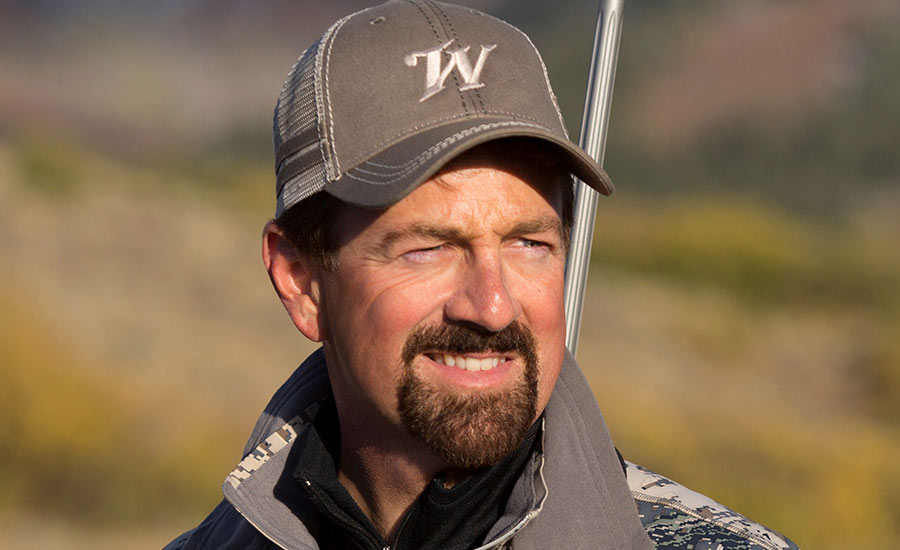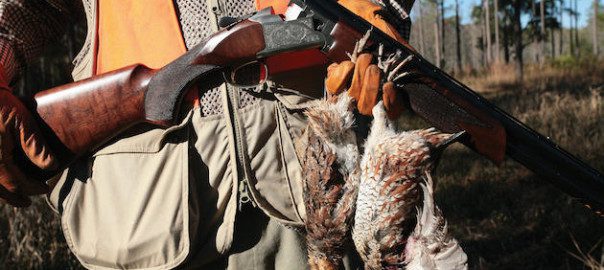Colorado residents are now mystified that the state’s legislature is about to take up a controversial bill that would ban mountain lion and bobcat hunting.
Not long ago, Denver could have been the literal manifestation of Ronald Reagan’s, “shining city on the hill.” It was a place with safe neighborhoods, reasonable governance, clean air and water, a strong economy and education that ranked among the best in the nation and a Rocky Mountain high that had nothing to do with legal weed.
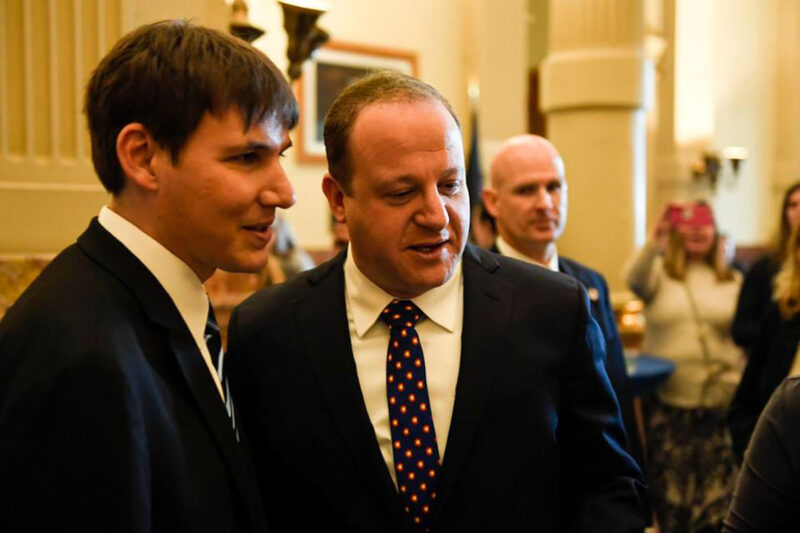
Vegan animal rights activist and First Gentleman of Colorado Marlon Reis has the ear of his husband Governor Jared Polis. DENVER POST VIA GETTY IMAGES
Today, however, Denver’s crime rates are soaring — violent crime is up 30 percent in the last decade, the auto and overall theft rates are the highest in the nation and climbing. The cost of crime in the state totaled more than $27 billion in 2020 alone — which is a staggering average cost per Coloradan of more than $4,700. Denver elected criminal reformers and the city’s soccer moms and others are now paying the price for it.
“What we’re seeing are people committing violent crimes and repeat offenders being arrested then let out the next day,” says former Denver District Attorney Mitch Morrissey. “These criminals will appear on Zoom or in court, but what they’re doing is committing crimes while out on bond.” The recidivism rate in Colorado ranks among the top five in the nation.
With the backdrop of a crumbling Olympus, Colorado residents are now mystified that the state’s legislature is about to take up a controversial bill that would ban mountain lion and bobcat hunting. “With all that’s going on with our soaring crime rates, Covid problems and other issues,” says District Attorney for the state’s most populous judicial district, John Kellner, “this is what our elected officials are focused on?” Kellner’s frustration with the current political morass led him to recently announce for the state’s Attorney General position.
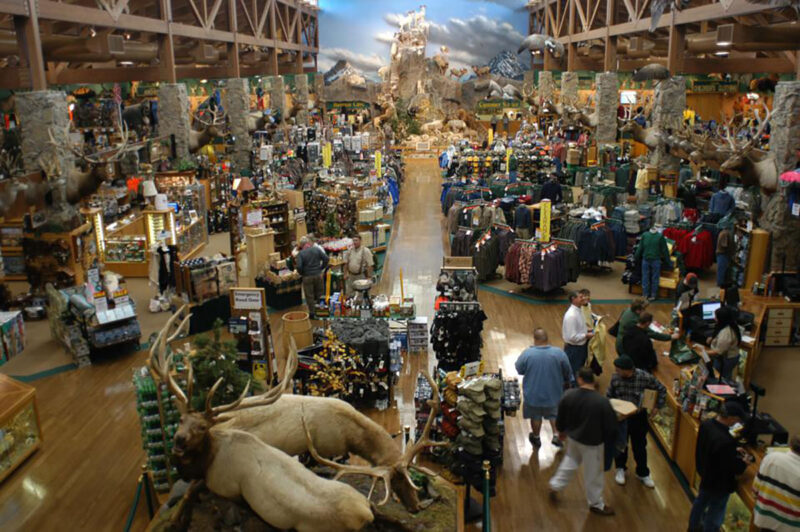
Colorado hunters and anglers bring in over $3.25 billion to the state every year, impacting all 64 counties in the state. DORSEY PICTURES
What’s driving this outlier piece of legislation at such an inopportune time? Many contend that it’s Governor Jared Polis’ vegan animal rights activist partner, Marlon Reis. Animal rights groups know they have a sympathetic ear in the Governor’s mansion. “My passion is definitely animal welfare,” Reis told lawmakers in the state legislature’s animal welfare caucus, known as CLAWS.
In a state where the beef industry is worth nearly $3 billion annually, there are some 12,000 cattle ranches, 206 feedlots and 24 USDA-certified processing plants (Colorado is the fourth largest exporter of beef in America), it’s an odd place for the Governor to proclaim a “MeatOut Day,” but that’s exactly what Polis did last March. In so doing, he signaled to the region’s agricultural community that the long-running National Western Stock Show may be better off finding a home elsewhere. Nearly 600,000 people attended the Denver show in January, contributing $120 million to the city’s economy.
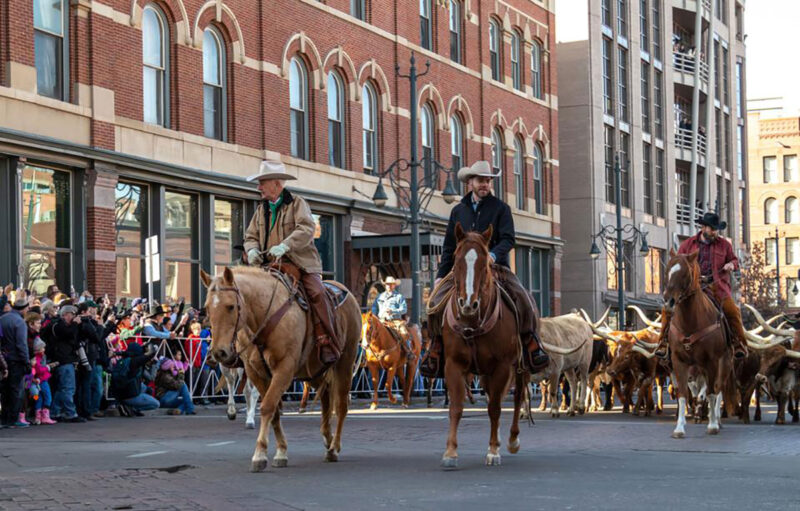
The National Western Stock Show has a 115-year history in Colorado and is the premier event for livestock sales nationwide. GETTY
Equally mystifying is the mountain lion and bobcat bill being backed by the Humane Society of the United States among other animal rights groups. The legislation would circumvent the state’s Parks and Wildlife Division — comprised of biologists, scientists, and other animal researchers with the mandate to manage the state’s wildlife for the public good — and, instead, places management of the two species in the hands of people whose experience with the animal kingdom is apt to come from a Disney film.
Never mind the fact that both mountain lions and bobcats are thriving across Colorado, or that sportsmen contribute nearly $3 billion annually to the state’s economy, support 25,000 jobs (especially in small towns and rural parts of the state without other economic drivers) and pay for the lion’s share of conservation initiatives across Colorado and the nation.
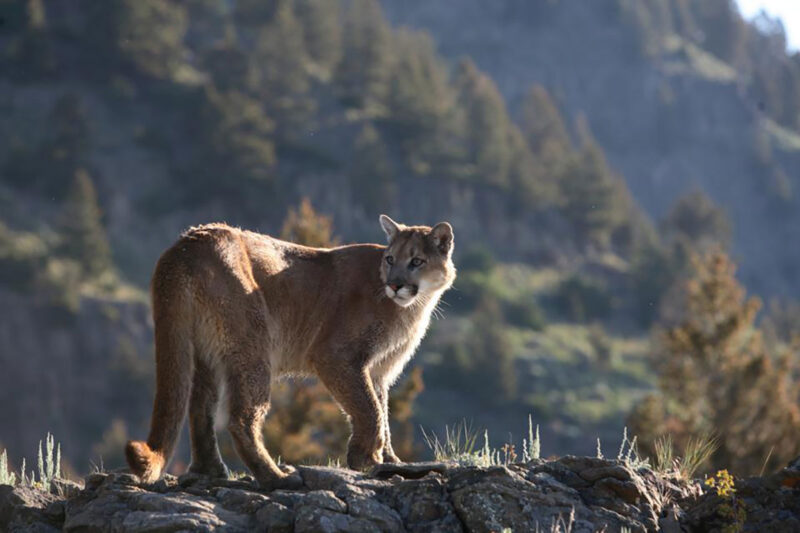
Colorado Parks & Wildlife estimates that the state’s thriving mountain lion population ranges from 3,000 – 7,000 cats. DORSEY PICTURES
The proposed legislation, however, has awakened the broader outdoor and agriculture communities who recently endured a wolf-introduction initiative shoved down their throats despite outcry from the people who would have the wolves in their backyards as well as the professionals at the state Parks and Wildlife office — widely regarded as among the best such agencies in America.
Political sea change often starts with small ripples. Colorado’s secular progressive leaders are rapidly disenfranchising significant voting blocs including sportsmen, agriculture, moms who fear for the safety of their families, red-flag despising gun owners, energy sectors, school choice proponents and many others.
Soon we will see if Colorado voters have had enough.
This column originally appeared in Forbes.
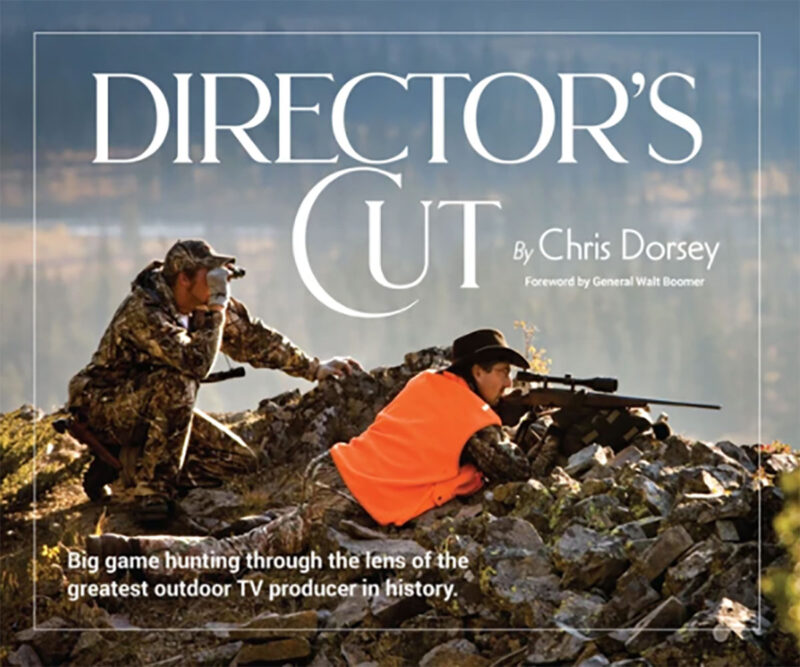 The world of sporting literature has a new classic from one of the planet’s most widely traveled hunters. Director’s Cut…Big game hunting through the lens of the largest outdoor TV producer in history, is a book and film production more than 10 years in the making. Author and Executive Producer Chris Dorsey, along with a team of the world’s best sporting life photographers and cinematographers, embarked on expeditions to distant corners of the globe to create an indelible portrait of big game hunting.
The world of sporting literature has a new classic from one of the planet’s most widely traveled hunters. Director’s Cut…Big game hunting through the lens of the largest outdoor TV producer in history, is a book and film production more than 10 years in the making. Author and Executive Producer Chris Dorsey, along with a team of the world’s best sporting life photographers and cinematographers, embarked on expeditions to distant corners of the globe to create an indelible portrait of big game hunting.
Dorsey has spent the past 25 years investigating and chronicling the animals, people and unforgettable places home to remarkable big game hunts while producing nearly 60 outdoor adventure television series. In the process, his teams amassed a library of more than 100,000 hours of HD footage and nearly 150,000 photographs, making Director’s Cut (the book and DVD) an unmatched celebration of the world of big game hunting. Buy Now

